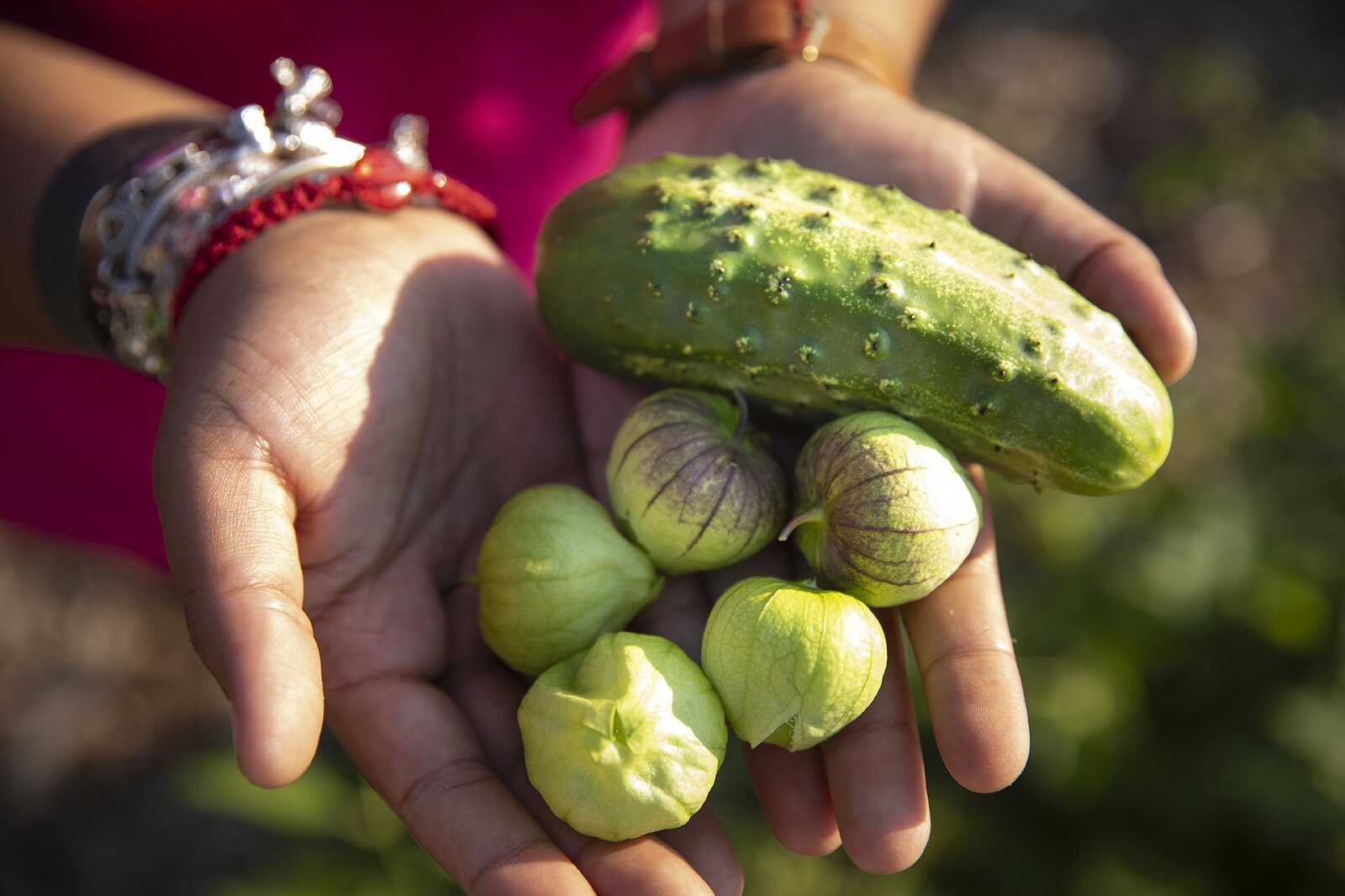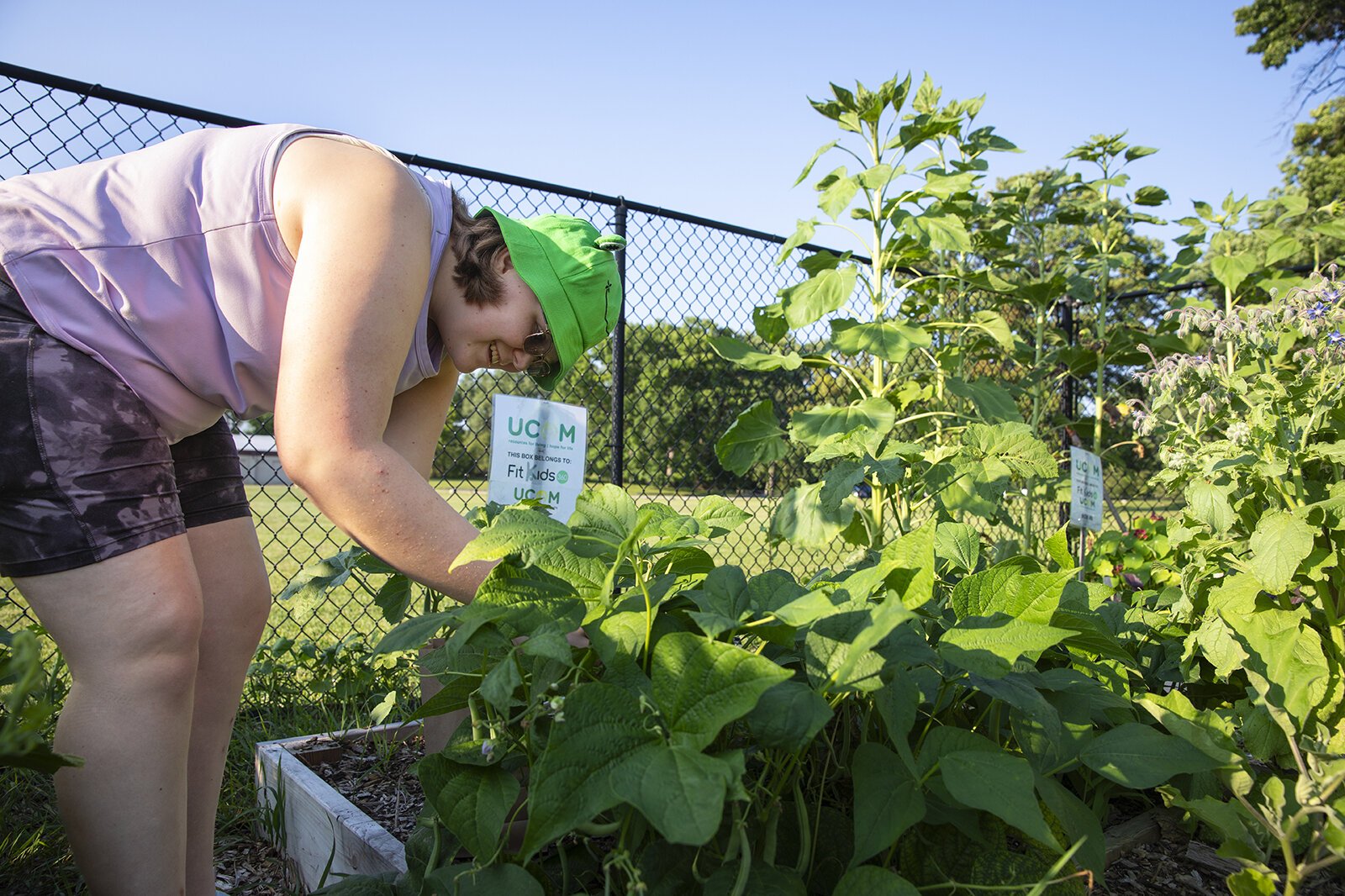
At two Youth Mentor Gardens, participating teens and their families work together to plant, weed, water, mulch, and harvest produce.
This article is part of State of Health, a series about how Michigan communities are rising to address health challenges. It is made possible with funding from the Michigan Health Endowment Fund.
When a mom showed up to the FitKids360 Youth Mentor Garden at Marquette Park in Wyoming, Mich., her quiet and seemingly indifferent teen son hung back from the group assembled there. Families involved in the project had gathered for a hands-on gardening session with staff and mentors from the nonprofits FitKids360 and HOPE Gardens.
HOPE Gardens Executive Director Julie Brunson describes one of the volunteer mentors that evening, a physician fluent in Spanish, as “super engaging.” Within minutes, his contagious enthusiasm and a huge pile of mulch had the once-hesitant teen hooked.
“This young man started spreading this mulch,” Brunson says. “It energized him the minute he started. They took this huge pile of mulch down and made the garden beautiful. You could see his sense of pride, his excitement. After that, I saw him get even more engaged in the garden.”
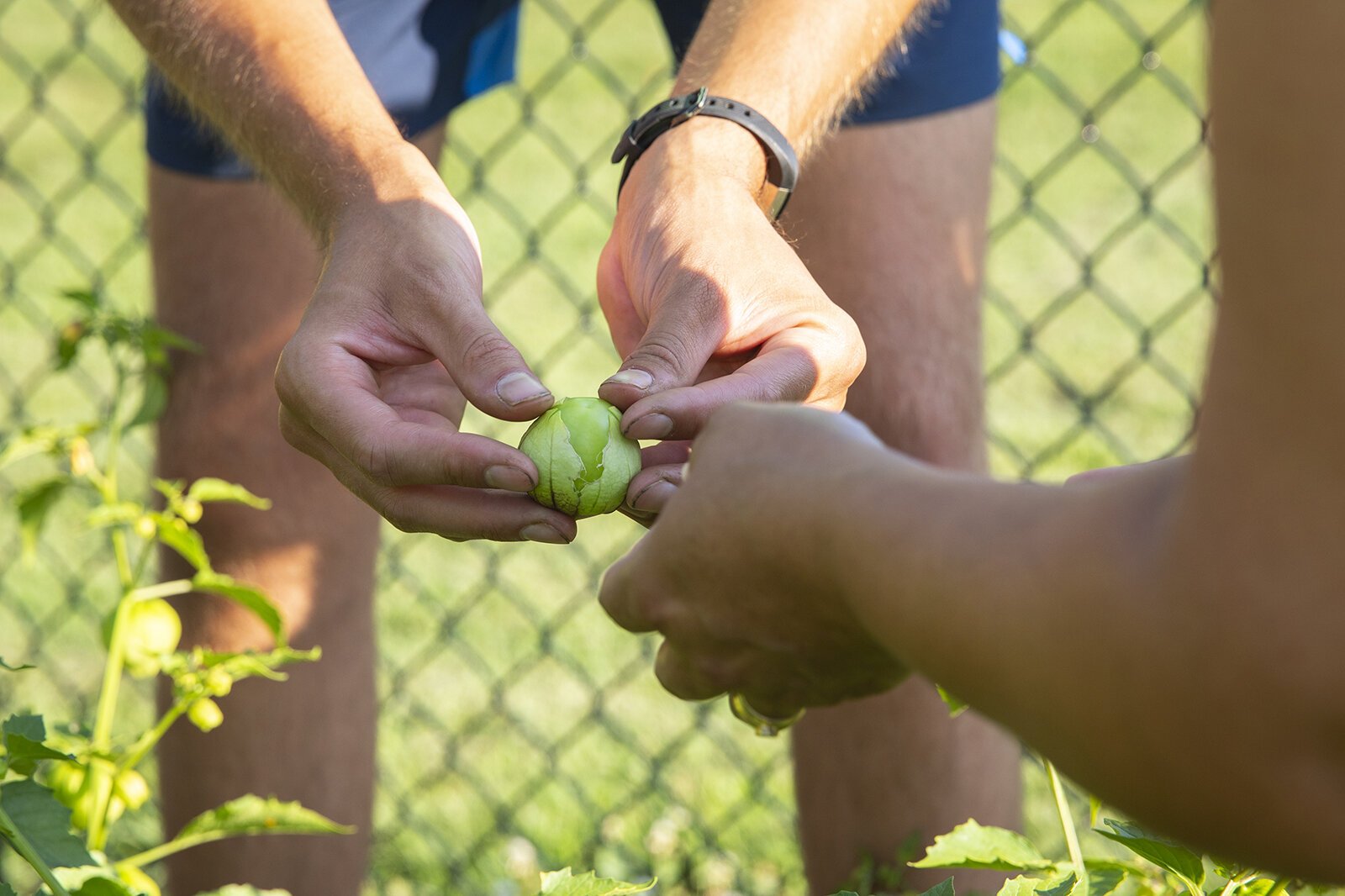
People work in the Youth Mentor Garden at Marquette Park in Wyoming, Mich.
The Youth Mentor Garden program is an expansion of Grand Rapids-based FitKids360’s health and wellness programming, operating out of gardens in Wyoming and Detroit. At the gardens, participating teens and their families work together to plant, weed, water, mulch, and harvest produce. They take the produce home or, at the Wyoming location, share it with United Church Outreach Ministry (UCOM), a garden partner and emergency food pantry serving Marquette Park’s neighborhood.
“In the process, we’re growing community,” Brunson says. “Gardening touches on mental health, food security, food sovereignty, and nutrition. When children grow it, they like to try it.”
Growing healthy foods and lifelong healthy habits
FitKids360 promotes lifelong healthy behaviors and habits through play and learning by engaging families and partnering with local organizations in health and wellness education, physical activity, and relationship building. Its signature FitKids360 program teaches about nutrition, behavior, and exercise, while its On the Move program focuses on physical activity.
“What we were hearing from a lot of our teenagers was, ‘I kind of need something else. Physical activity is great, but I also need a little bit more guidance.’ That’s what our intention was for the Youth Mentor Garden,” says Carola Carassa, FitKids360 director of operations. “If they have younger siblings or immigrant parents, there are things that they are encountering that, frankly, their parents haven’t seen, and they can’t talk to their siblings about. They find themselves in this weird little limbo.”
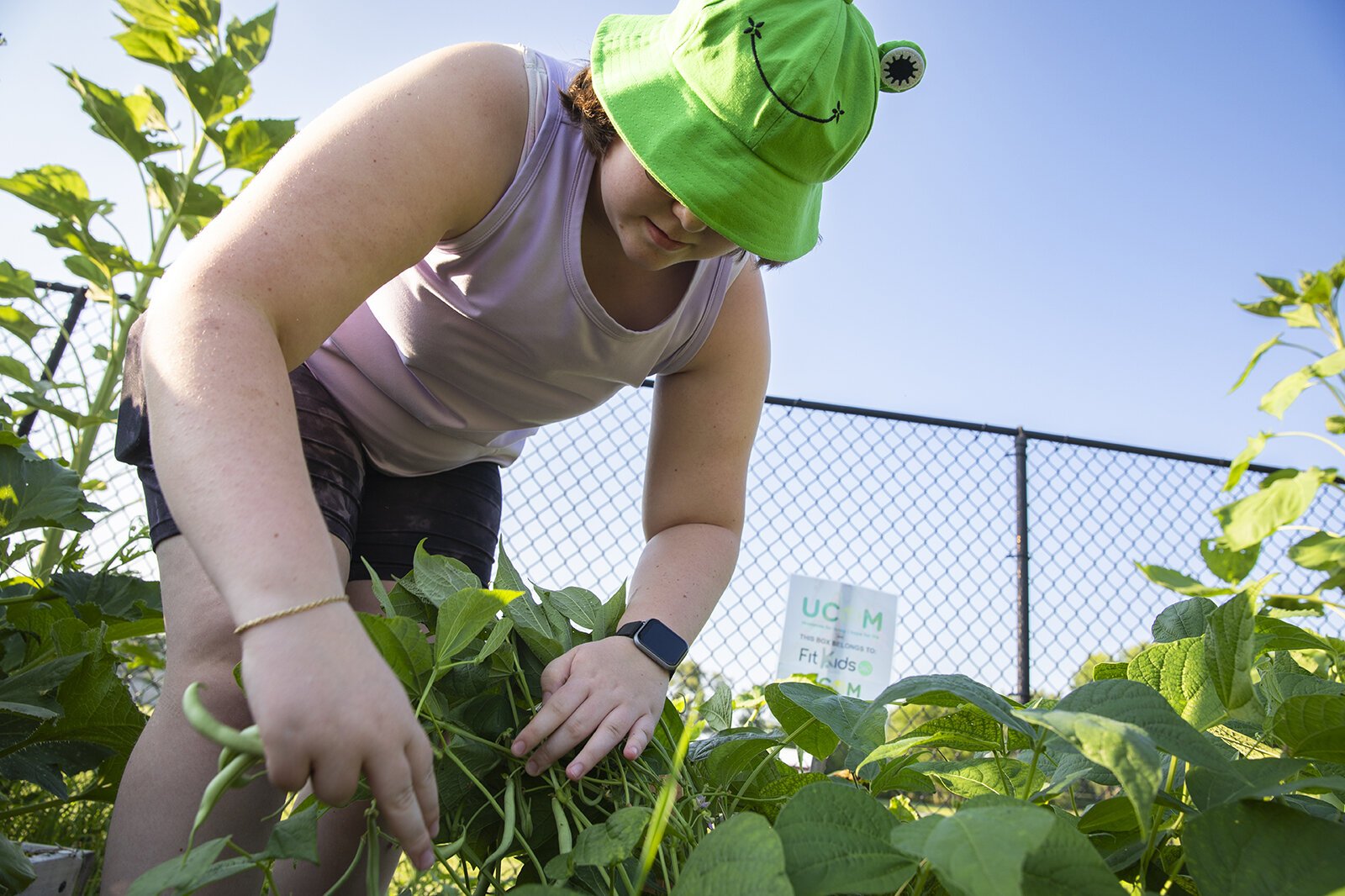
Youth participant Lucy Krug works in the Youth Mentor Garden at Marquette Park in Wyoming, Mich.
Open to all families who have participated in the signature FitKids360 class, the Youth Mentor Garden program targets youth aged 12 and older and their family members. This year, the Wyoming garden has six families (25 participants) enrolled, and the Detroit garden has seven families (30 participants).
“We have the entire family out in the garden with us,” says Maria Velasquez-Lopez, the FitKids360 program coordinator who works with the Wyoming garden. “We’re learning about various things. We don’t necessarily document health conditions, but a lot of our participants have asthma. We do work with families who are at risk for obesity, as well.”
Carassa explains that time in the garden creates an opportunity for teens to explore how to find respite and solace, in the garden and at home. They also get a look at the cycle of life, from seed to compost — birth to death. Carassa says that prompts “metaphysical conversations” in the garden.
“Young people, especially teenagers, are trying to find their space in the world,” she says. “So how do we equip them?”
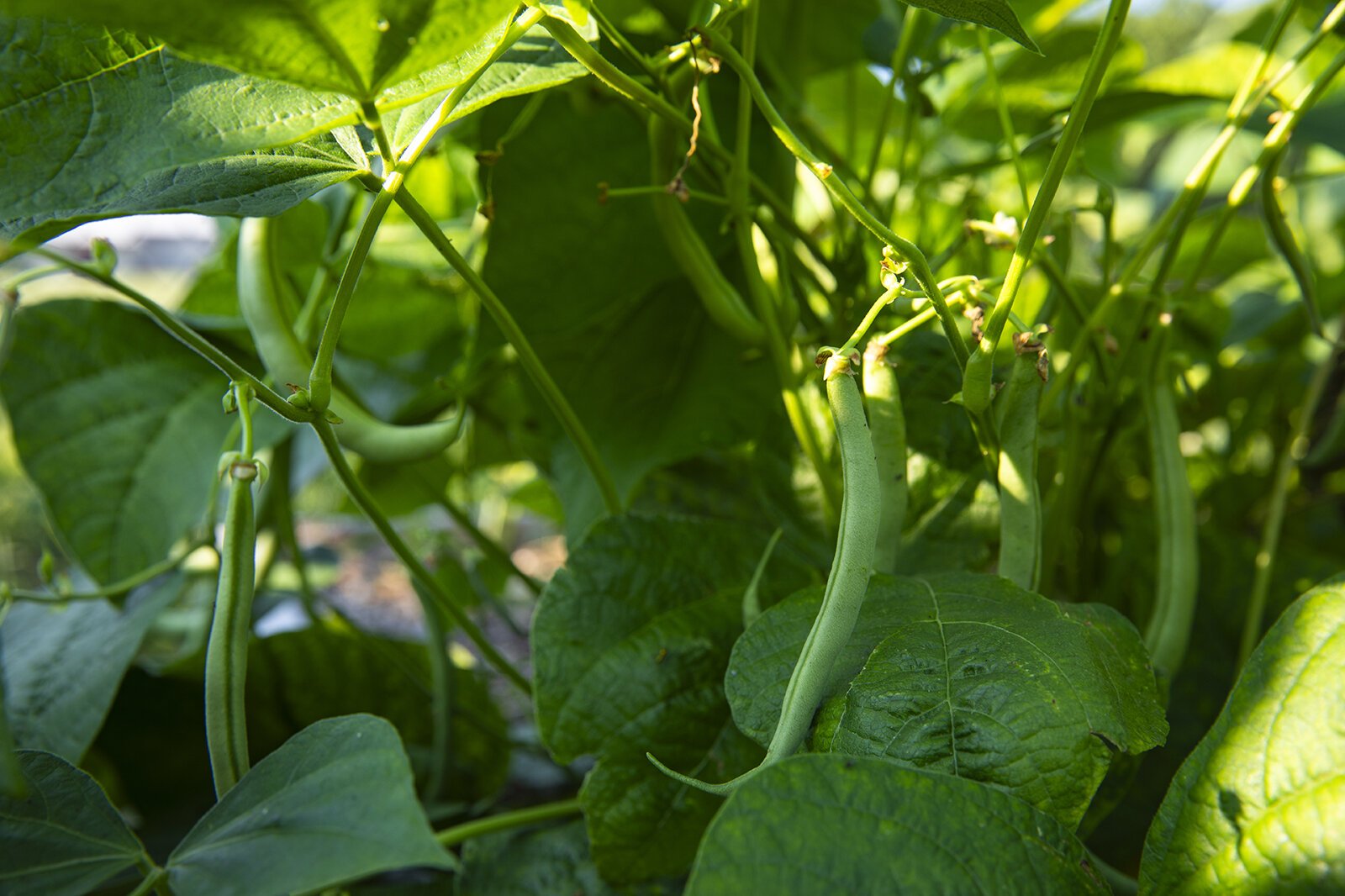
The Youth Mentor Garden at Marquette Park in Wyoming, Mich.
While teens are the focus, their younger siblings are equally invested in planting, weeding, watering, and harvesting produce. When last year’s watermelon patch at the Detroit garden yielded only one melon, the younger children all wanted to take it home so badly that a raffle was the only way to decide who got it.
“They were like, ‘Oh my gosh, I want to take that home.’ A little boy won it. He was so excited. We ended up giving everybody a watermelon from somewhere else,” says Paige Theida, FitKids360’s program coordinator in Detroit. “These little kids are losing their minds over a carrot, fighting over an eggplant, grabbing greens. You don’t see kids getting excited like that over vegetables at Meijer.”
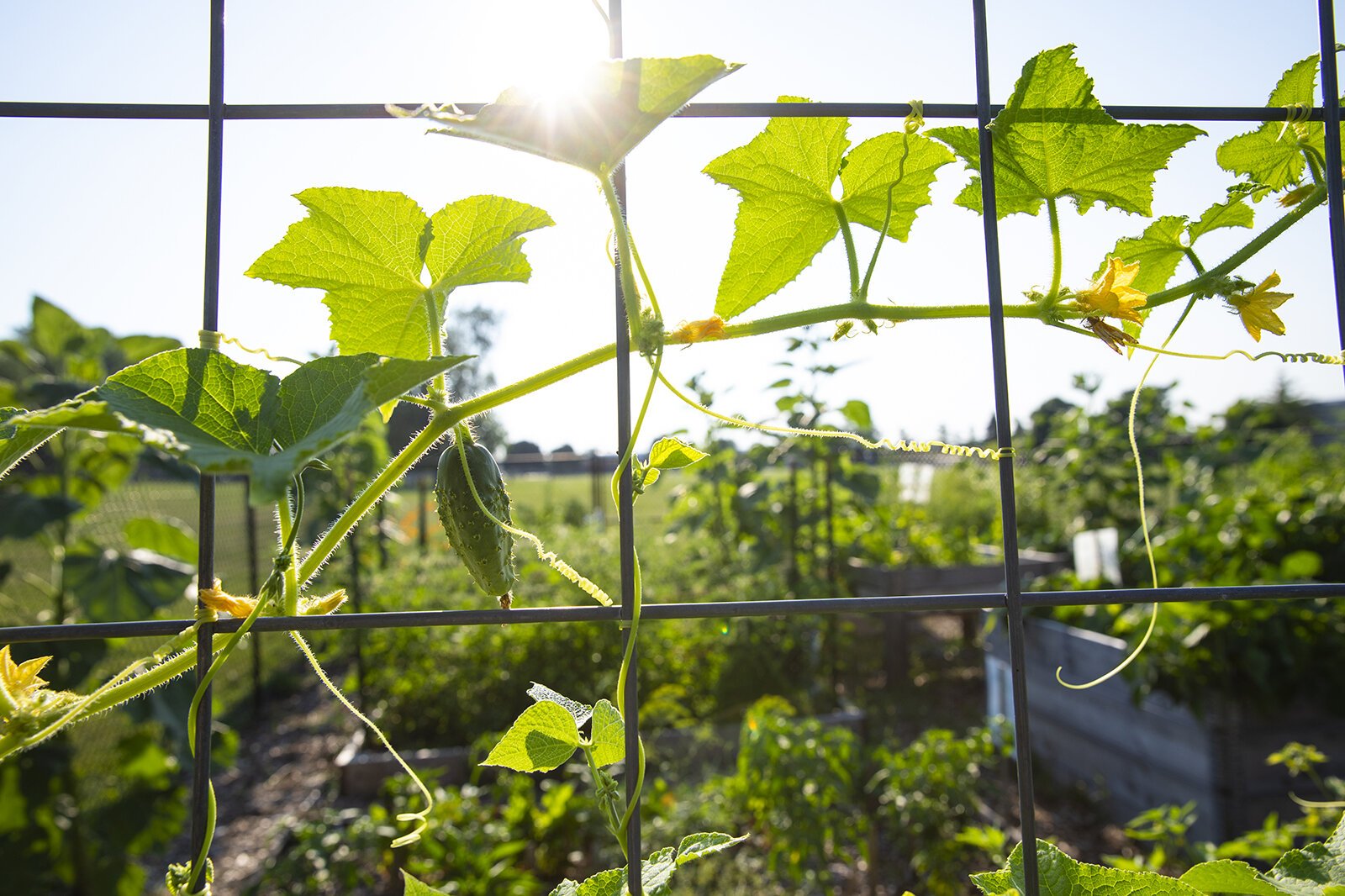
The Youth Mentor Garden at Marquette Park in Wyoming, Mich.
Younger siblings at the Wyoming garden show equal enthusiasm. To highlight a lesson on beneficial insects, Brunson brought worms for the garden one evening.
“Children could pick a worm and give it a name,” Theida says. “These little girls didn’t want to touch the worm, but we helped them bring them to the garden and give them a new home.”
Lessons on growing, lessons for life
FitKids360 staff members present a different lesson in the gardens each week. The topic might be food gardening, nutrition facts, or practicing mindfulness. At the Detroit garden, mindfulness practices have included a garden walk that encourages families to observe the growing plants with all of their senses, as well as yoga in the garden. As the family members become more present in the growing garden, they are able to take a mental break from the demands and stresses of their daily lives.
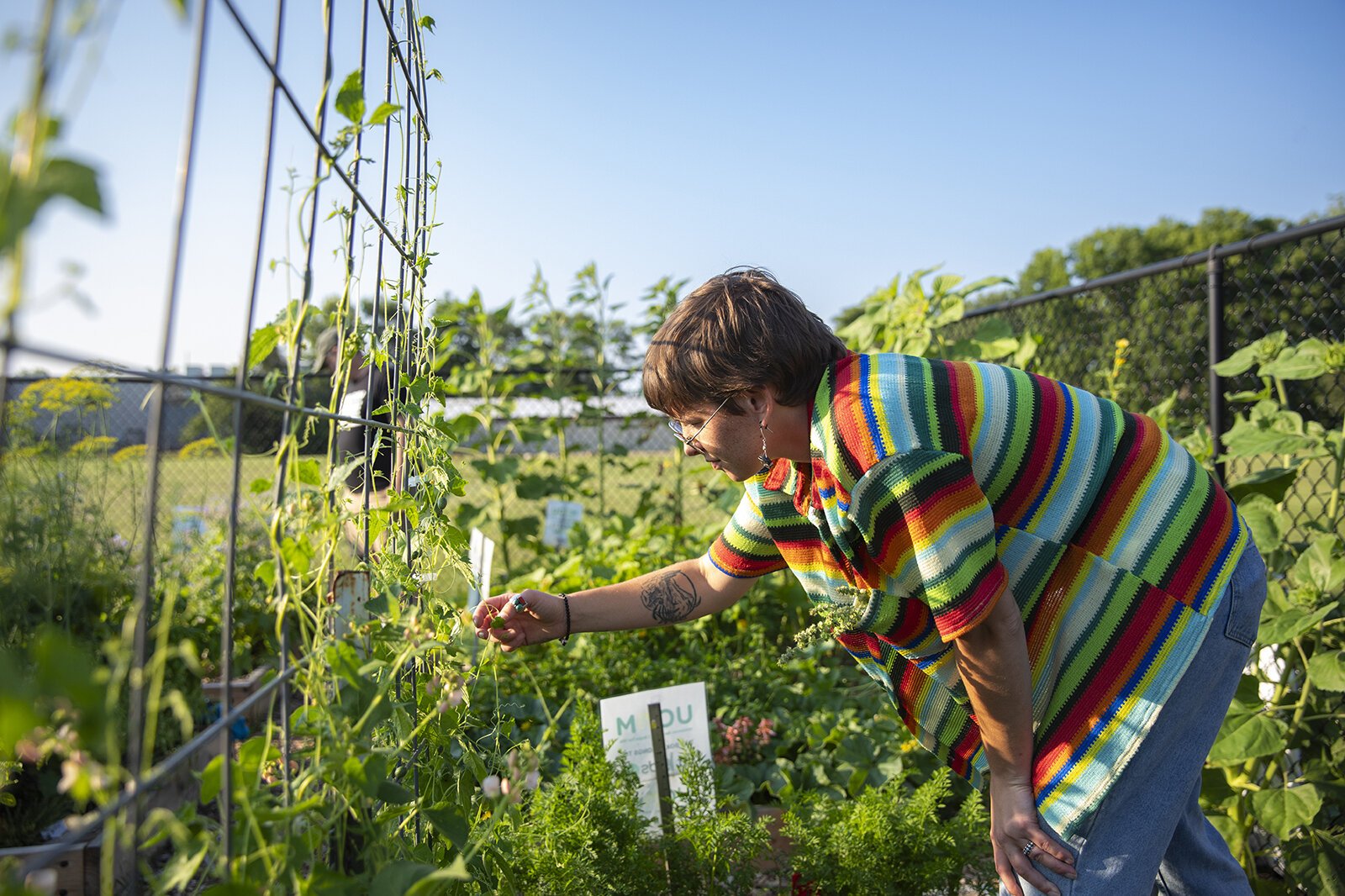
FitKids360 staffer Kaci Ellens works in the Youth Mentor Garden at Marquette Park in Wyoming, Mich.
At the Wyoming garden, HOPE Gardens mentors follow up the FitKids360 staff lessons with a related activity. Following a lesson on critical thinking, the mentors taught the families how to identify the parts of plants. After a lesson on the importance of finding mentors and support systems in life, HOPE Gardens enlisted the families to help install trellises to support some of the plants.
“Every week they come, they’re learning something new that they can apply to a home garden if they have the space,” Brunson says. “We also teach about potted gardens, how they can do this on their deck.”
When plans for the Detroit Youth Mentor Garden were presented, Theida was not thrilled at the prospect. She knew nothing about gardening and she anticipated that leading the program would be a struggle.
“Once we got the program started, it was so much easier for me because the families actually loved it. They came every week,” she says. “… They changed my mindset quickly.”
The program has also become one of Velasquez-Lopez’s favorites.
“There’s something about being outdoors, where families are able to come as they are and not have the worries present in their minds,” Velasquez-Lopez says. “They’re able to talk freely as a family, with the group, and with our instructors. They come as they are and be themselves.”
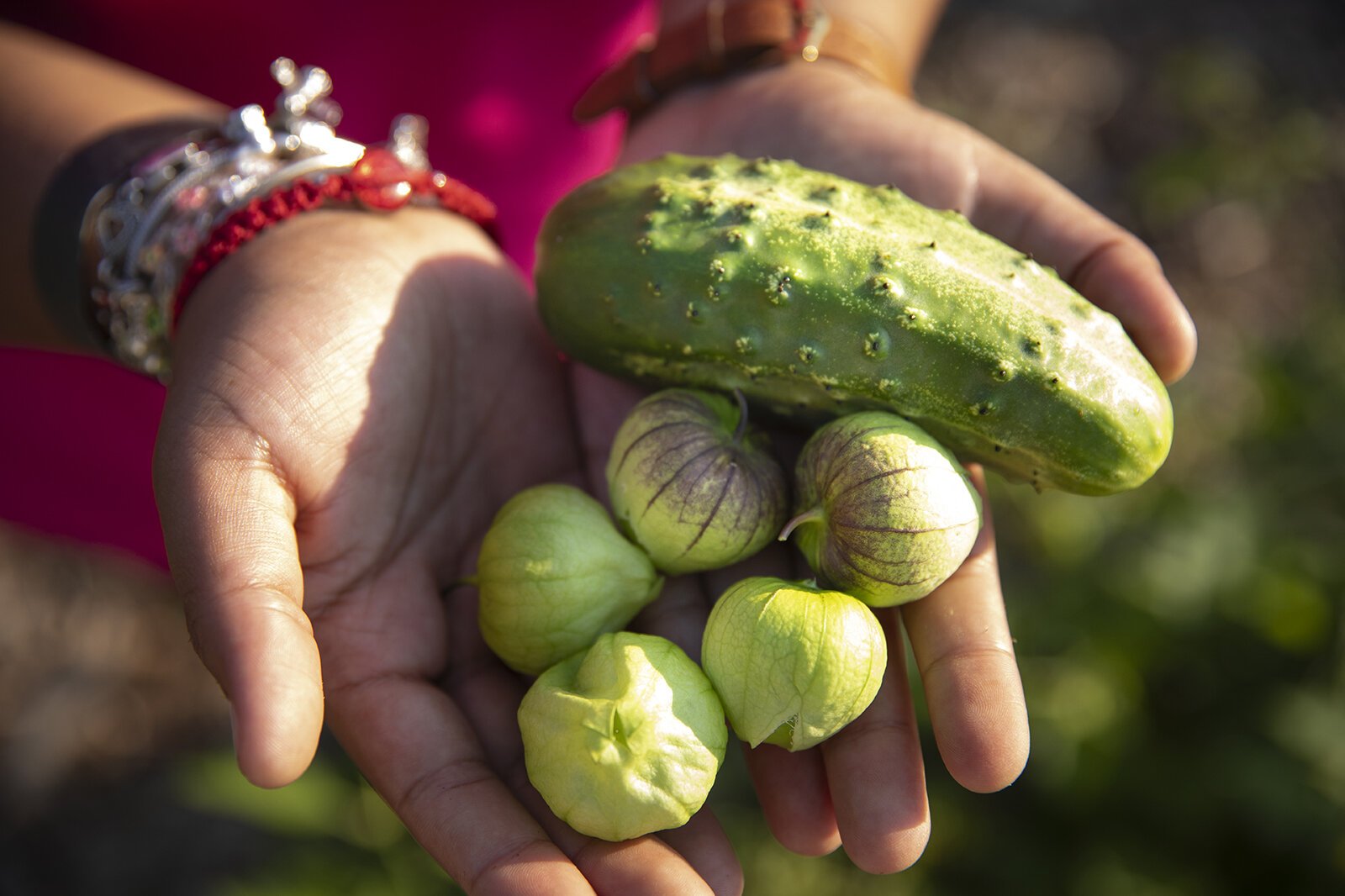
Produce from the Youth Mentor Garden at Marquette Park in Wyoming, Mich.
Brunson agrees.
“We love the people, the families. We grow relationships with them,” she says. “The garden is a beautiful place where it doesn’t matter your age or affiliation, your gender, your nationality. We can come together and grow.”
Estelle Slootmaker spends most workdays as a journalist and book editor. She also writes poetry and has two books underway: her great great grandmother’s memoir of childhood on Mackinac Island and a children’s picture book. You can contact her at Estelle.Slootmaker@gmail.com.
Photos by Kristina Bird.

